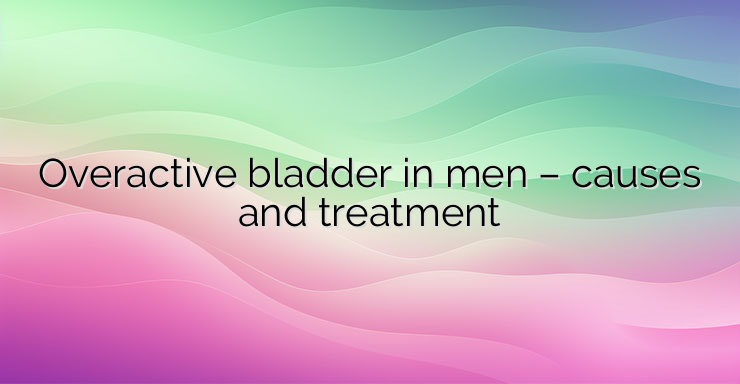Overactive bladder is a urogenital disease affecting mostly men, as a specific component of the disease in them is the prostate gland. Overactive bladder syndrome is characterized by frequent urges to urinate – they are frequent and strong enough to disrupt any man’s daily routine and sleep. When bladder control is lost, a condition known as incontinence – the involuntary leakage of urine – often develops. Even without the development of incontinence, an overactive bladder often results in: difficulty initiating urination, the need to use force and muscle contractions to pass urine, and the presence of weak or split urine flow. Between 11% and 16% of men suffer from this condition, with the most common cause being the enlargement of the prostate gland – this leads to obstruction of the normal flow of urine to the urethra. Other common causes of the condition are: weakened muscles in the bladder area, genitourinary infections, constipation, urinary stones, leading a sedentary lifestyle, obesity and uncontrolled diabetes. Often, men suffering from the condition find it embarrassing and “unmanly”, especially if urine leakage is present. This causes them to avoid visiting a urologist or medical professional and leads to a rapid complication of the problem. NEWS_MORE_BOX The condition is completely treatable. If after conducting a rectal examination for the state of the prostate gland no problem is detected, a neurological examination and an examination of the sphincter are appointed. After an examination and ultrasound, the correct diagnosis is made and the correct treatment is prescribed. If the cause is an enlarged prostate, alpha-blockers are most often prescribed, which help relax the surrounding muscles and ease the flow of urine through the urethra. The doctor may also prescribe 5-alpha reductase inhibitors, which reduce the size of the prostate gland. Concomitant medications to suppress the need to urinate are prescribed less often, but are not a cause for concern. For more severe cases that do not improve after medication, effective surgical solutions are available to correct the position of the urethra and bladder. After successful healing, it is recommended to avoid carbonated drinks, aspartame and other artificial sweeteners, as well as certain other foods and drinks that act as diuretics.


Leave a Reply